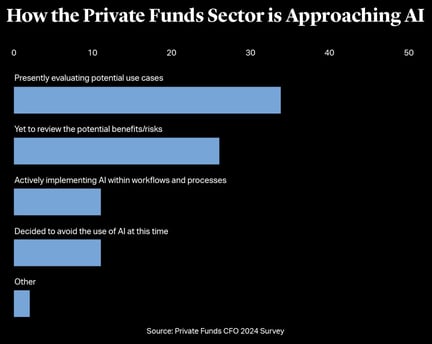AI Agents and the Future of African Finance
In Africa, where financial systems are still evolving and investment flows remain fragmented, the emergence of AI-powered financial intelligence is poised to unlock new opportunities.
By Finsdeq (finsdeq.com)
3/17/20253 min read


The world is witnessing a transformation in the way capital is allocated, risks are assessed, and markets are navigated. Artificial Intelligence (AI), once a niche technology, has become a defining force in global finance, reshaping everything from investment strategies to regulatory compliance. In Africa, where financial systems are still evolving and investment flows remain fragmented, the emergence of AI-powered financial intelligence is poised to unlock new opportunities.
Over the past decade, Africa has attracted growing interest from institutional investors, private equity firms, and sovereign wealth funds, eager to capitalize on its vast untapped potential. However, challenges such as illiquid markets, data scarcity, regulatory complexity, and geopolitical volatility have often tempered enthusiasm. AI agents—autonomous, adaptive systems capable of processing vast amounts of financial and economic data—are now being positioned as a game-changer, mitigating these risks while enhancing financial efficiency.
From Portfolio Optimization to Predictive Analytics
Leading financial institutions worldwide have already integrated AI into their operations, but Africa presents a unique case for AI-driven investment strategies. Unlike traditional markets, where financial data is abundant and structured, African economies are characterized by asymmetrical information, informal capital flows, and underdeveloped credit markets. AI’s ability to extract insights from unstructured data—social trends, mobile transactions, satellite imagery, and alternative credit assessments—offers a competitive edge.
For private equity and venture capital firms operating on the continent, AI agents can accelerate due diligence, monitor macroeconomic risks, and optimize portfolio exposure. AI-driven predictive analytics can assess the financial viability of investments by incorporating non-traditional indicators, such as supply chain disruptions, currency fluctuations, and commodity price shifts.
Moreover, AI-powered risk assessment models can detect early warning signs of financial distress, helping investors preempt crises rather than react to them. This is particularly relevant in sectors such as infrastructure, energy, and agriculture, where external shocks—from climate change to political instability—can drastically impact financial performance.
AI and Africa’s Financial Centers: Casablanca and Beyond
As AI becomes increasingly embedded in financial decision-making, Africa’s leading financial hubs are taking note. Casablanca Finance City (CFC) in Morocco, one of the continent’s most ambitious financial platforms, is actively positioning itself as a gateway for AI-driven investment strategies. The city has attracted global asset managers and fintech firms that recognize the potential of integrating AI into Africa-focused financial models.
Casablanca’s financial ecosystem, backed by a favorable regulatory framework and access to Francophone and Anglophone African markets, offers an ideal testing ground for AI adoption. In partnership with institutional investors, AI-driven financial products could redefine capital allocation strategies across the continent.
Other financial hubs, including Johannesburg, Lagos, and Nairobi, are also witnessing increased AI integration, with fintech firms deploying AI agents to expand financial inclusion, reduce fraud, and streamline cross-border transactions.
Regulatory Challenges and Ethical Considerations
Despite AI’s promise, its deployment in African finance is not without risks. The absence of robust data governance frameworks, regulatory oversight, and AI-specific compliance mechanisms could expose markets to systemic vulnerabilities. There are also concerns about algorithmic biases, particularly in credit assessments, where AI models trained on incomplete or skewed datasets could reinforce financial exclusion rather than mitigate it.
Regulators are now playing catch-up. In 2025, key financial watchdogs in Africa, including the Moroccan Capital Market Authority (AMMC) and the South African Reserve Bank, have begun crafting AI-specific regulationsaimed at ensuring transparency, accountability, and ethical AI deployment. However, harmonizing regulatory standards across African markets remains a complex challenge.
A New Era of Financial Intelligence
As AI adoption accelerates, the coming years will likely witness a deepening integration of AI agents into Africa’s financial landscape. Global investment firms, including those with a long-term commitment to the continent, are increasingly exploring how AI-driven strategies can enhance capital efficiency, risk management, and investment performance.
For Africa, this could mark the beginning of a more data-driven, transparent, and efficient financial era—one where AI does not replace human decision-makers but enhances their ability to navigate complexity, anticipate market shifts, and unlock new frontiers of growth.




Contact us
info@m212ai.com
Follow us
Subscribe to our newsletter
© 2025, M212AI. All Rights Reserved.
